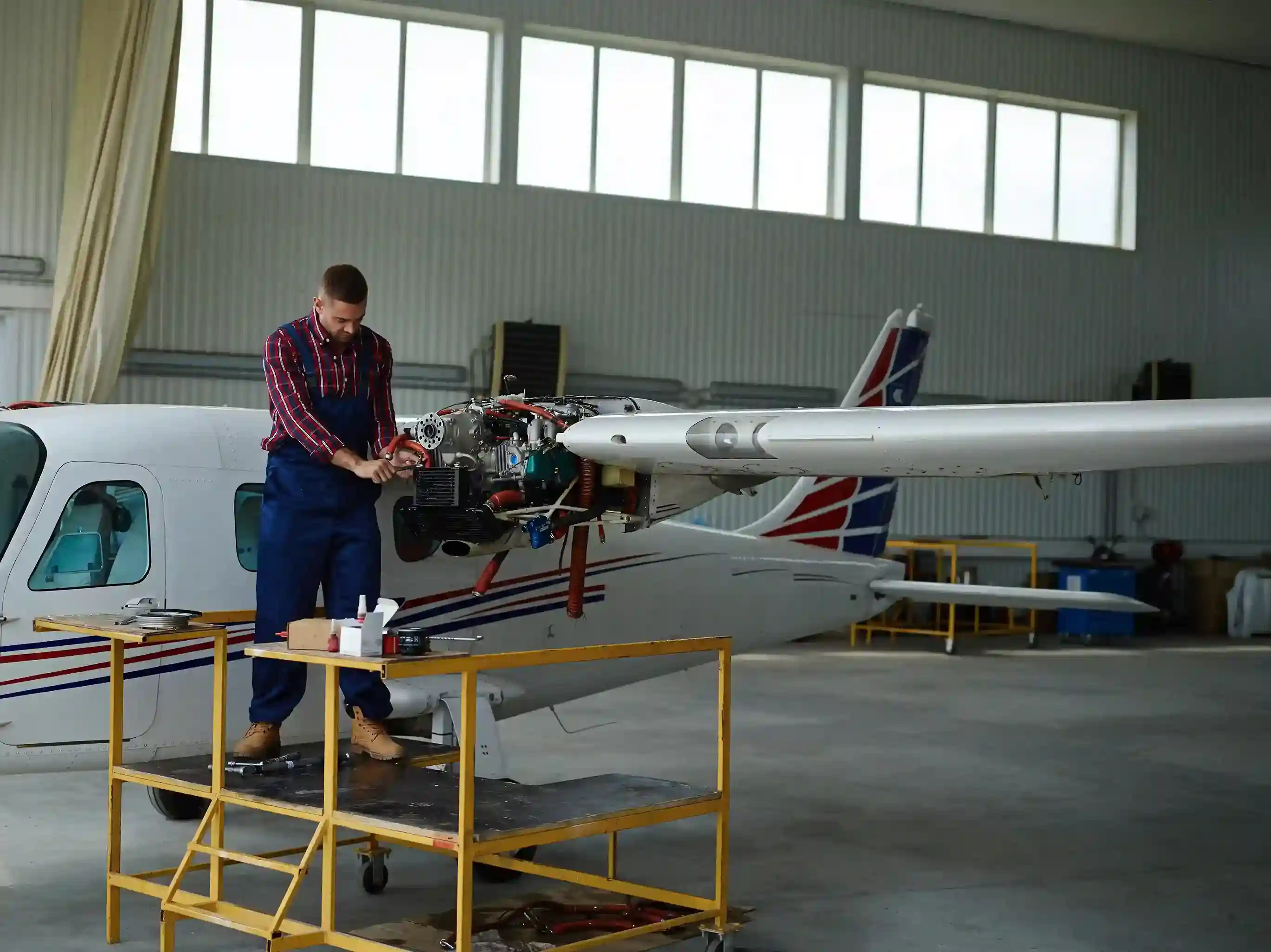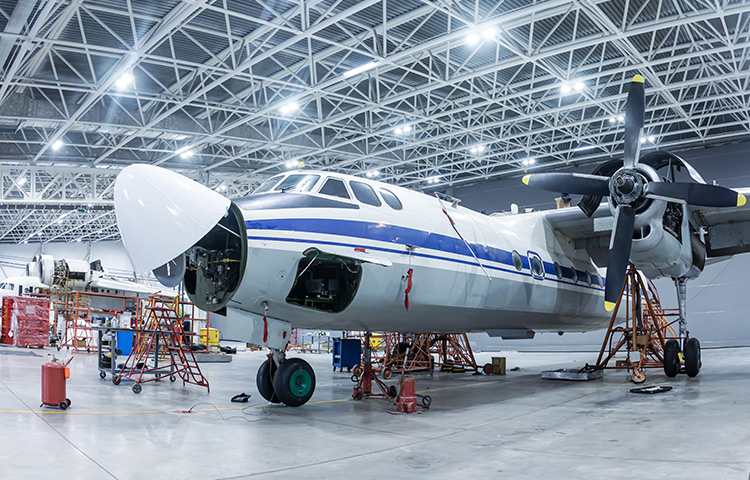Aerospace Engineering is a broad field that focuses on the design, development, and maintenance of aircraft and spacecraft. This field contributes to the advancement of aerospace products, scientific research, and space exploration.
Key highlights:
- Benefits of Pursuing Higher Education at the Best Aerospace Engineering Colleges in the UK
- Aerospace Engineering in the UK – Course Overview
- Difference Between Aerospace Engineering and Aeronautical Engineering in the UK
- Who Should Consider a Master’s in Aeronautical Engineering in the UK and Aerospace Engineering?
- Career Options to Consider After an MSc in Aerospace Engineering in the UK
- Career Options to Consider After an Aeronautical Engineering Master’s in the UK
- Best Aerospace Engineering Universities in the UK
- Fees for Aerospace Engineering and Aeronautical Engineering in the UK
Top Benefits of Pursuing Higher Education at the Best Aerospace Engineering Colleges in the UK
- High-Quality Education: UK universities consistently rank among the best globally, especially for engineering and technology education. Studying Aerospace Engineering in the UK benefits students with a low student-to-faculty ratio (typically 10:1 to 15:1), ensuring personalised attention. Moreover, as Europe’s largest aerospace market and home to global companies such as Airbus, BAE Systems, and Rolls-Royce, the UK is an ideal destination to build a global career in Aerospace.
- Industry Partnerships: Most universities have strong ties with aerospace companies like BAE Systems, Rolls-Royce, and Airbus.
- Research Opportunities: Students engage in cutting-edge research using high-tech labs, wind tunnels, and real-world projects.
- Post-Study Work Opportunities: International graduates can apply for a Graduate visa to remain in the UK for at least two years post-graduation (three years for PhD holders) to work or seek employment.

Aerospace Engineering in the UK – Course Overview
| Degree | Duration | Subjects/Specialisations |
|---|---|---|
| Bachelor of Engineering (BEng) or Bachelor of Technology (BTech) | 3-4 years |
|
| Master of Engineering (MEng) or Master of Technology (MTech) | 1-2 years |
|
| Doctor of Philosophy (PhD) | 3-4 years |
|
To become an Aerospace Engineer in the UK, you need a relevant Bachelor’s degree (3-4 years), followed by an optional Master’s degree (1-2 years).
Difference Between Aerospace and Aeronautical Engineering in the UK
Students often confuse Aerospace and Aeronautical Engineering, as both involve the study of aviation and aircraft design. However, the key difference lies in their scope.
Aerospace Engineering is a broad field that covers holistic knowledge about aircraft and spacecraft. It gives a wider scope, including space exploration. Aeronautical Engineering is a specialised field, focusing on the study of aircraft that fly within the Earth’s atmosphere, such as aeroplanes, drones, and missiles.
Who Should Consider a Master’s in Aerospace Engineering in the UK and Aeronautical Engineering?
A Master’s degree in Aeronautical or Aerospace Engineering in the UK ideally suits graduates holding a relevant Bachelor’s degree and looking for specialised expertise or career advancement. Graduates passionate about advanced studies in aerodynamics, aircraft design, propulsion systems, and unmanned aerial vehicle (UAV) technology should consider a Master’s in Aeronautical Engineering in the UK.
Meanwhile, individuals aiming for a deeper dive into aircraft instrumentation systems, Civil Aviation Regulation (CAR), aircraft maintenance and practice, aircraft systems, aircraft structures, avionics, and aircraft radio systems can pursue a Master’s in Aerospace Engineering in the UK.
Also Read: Cost of Living in the UK for International Students
Career Options to Consider after an MSc in Aerospace Engineering in the UK
- Aerospace Engineer
- Aerodynamics Engineer
- Avionics Specialist
- Structural Engineer
- Propulsion Engineer
- Computational Fluid Dynamics Analyst
Career Options to Consider After an Aeronautical Engineering Master’s in the UK
- Design Engineer
- Research Engineer
- Systems Engineer
- Avionics Engineer
- Flight Test Engineer
Aerospace engineers in the UK can typically earn between ~£30,000 and ~£60,000 annually.
Also Read: UK Universities Without IELTS: What You Need to Know
Best Aerospace Engineering Universities in the UK
Here are the top Aerospace Engineering universities in the UK as per the Quacquarelli Symonds (QS) World University Rankings and Times Higher Education (THE) World University Rankings.
- QS category: QS World University Rankings by Subject 2025 – Mechanical, Aeronautical & Manufacturing Engineering (UK-specific)
- THE category: World University Rankings by Subject 2025 – Engineering (Mechanical & Aerospace) (UK-specific)
| Universities | THE Rankings 2025 | QS Rankings 2025 |
|---|---|---|
| University of Oxford | 1 | 2 |
| University of Cambridge | 2 | 1 |
| Imperial College London | 3 | 3 |
| University of Manchester | 4 | 4 |
| University College London | 5 | 8 |
| University of Edinburgh | 6 | 12 |
Aerospace Engineering and Aeronautical Engineering in the UK – Fees
Here are the approximate tuition fees for some of the best universities for Aerospace Engineering in the UK:
| University | Programme | Fees |
|---|---|---|
| University of Manchester | BEng (Aerospace Engineering) | ~£34,000 per year |
| University of Bristol | BEng (Aerospace Engineering) | ~£32,000 per year |
| Imperial College London | MEng (Aeronautical Engineering) | ~£43,000 per year |
| University of Glasgow | MSc (Aerospace Engineering and Management) | ~£33,000 full-time |
While the scope of Aerospace Engineering in the UK offers a valuable investment in your future, the associated study costs can be overwhelming.
At Avanse Financial Services, we offer personalised education loans for studying abroad. You can avail of 100% finance, quick sanctions, and flexible repayment options. If you wish to understand the estimated EMIs on your education loan, use our online EMI calculator. For any further queries, connect with us today!










